This article first appeared in the Salvationist magazine and is published with permission.
By Nick Coke
I hear the same question all the time. Essentially it’s this: I know we should fight for social justice, but how do we actually do it?
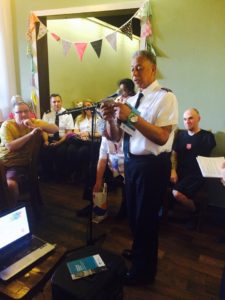 In terms of theological, devotional and motivational material urging us forward in the fight we have never had it so good. The biblical mandate for action is being preached with new fervour in the light of austerity, political upheaval and the refugee crisis. Resources are plentiful – campaign material regularly finds its way into our letterbox, email inbox and social media feeds. Dutifully we follow the instructions to pray, fundraise, get informed and click on the link to another petition website. Online activity in the cause of social change has led to the coining of a new word – ‘clicktivism’. Apparently we’re clicking like we’ve never clicked before. Yet beneath it all comes that nagging question – is any of this really making a difference? It all feels so detached. There’s surely more to justice-seeking than this.
In terms of theological, devotional and motivational material urging us forward in the fight we have never had it so good. The biblical mandate for action is being preached with new fervour in the light of austerity, political upheaval and the refugee crisis. Resources are plentiful – campaign material regularly finds its way into our letterbox, email inbox and social media feeds. Dutifully we follow the instructions to pray, fundraise, get informed and click on the link to another petition website. Online activity in the cause of social change has led to the coining of a new word – ‘clicktivism’. Apparently we’re clicking like we’ve never clicked before. Yet beneath it all comes that nagging question – is any of this really making a difference? It all feels so detached. There’s surely more to justice-seeking than this.
Ten years ago those nagging doubts started my journey towards a more active justice-seeking faith. What follows are four lessons I have learnt along the way. I share them with the hope they might provoke and encourage you a little.
LIVING A JUST LIFE
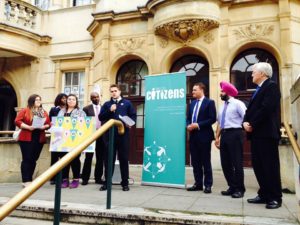 The beginning of justice-seeking is neither an action nor a programme. As an officer once reminded me: ‘We don’t do social justice – we live justly.’ In Salvation Army theology it springs from our holiness teaching, where the inner life of a believer, orientated around a relationship with God, spills over into public life. Faith may be personal but it’s never private. The inner working of our hearts is manifested in hundreds of actions and decisions we make every day. Living a just life begins with how we treat others, who we include, how we use our wealth and time. This applies to those closest to us, neighbours and work colleagues, our corps family and, by extension, the whole of humanity. The rather wonderful truth I’ve discovered is that the more I’ve chased personal holiness the more compelled I’ve been to seek a just world and the more justice-seeking I’ve engaged with the more convicted I’ve been about personal transformation.
The beginning of justice-seeking is neither an action nor a programme. As an officer once reminded me: ‘We don’t do social justice – we live justly.’ In Salvation Army theology it springs from our holiness teaching, where the inner life of a believer, orientated around a relationship with God, spills over into public life. Faith may be personal but it’s never private. The inner working of our hearts is manifested in hundreds of actions and decisions we make every day. Living a just life begins with how we treat others, who we include, how we use our wealth and time. This applies to those closest to us, neighbours and work colleagues, our corps family and, by extension, the whole of humanity. The rather wonderful truth I’ve discovered is that the more I’ve chased personal holiness the more compelled I’ve been to seek a just world and the more justice-seeking I’ve engaged with the more convicted I’ve been about personal transformation.
MOVING TO THE EDGES
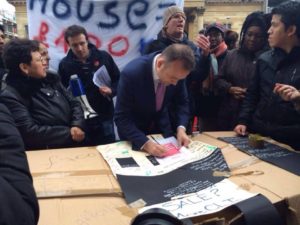 While justice begins with God, it clearly involves people. In the Exodus story the groans of the Israelite slaves rise up before God and initiate a social justice movement (Exodus 2:23–25). In today’s world we constantly hear the groans for ourselves – the low-paid worker at the food bank, the refugee, the homeless and the discriminated against. Most of us long to end such suffering. The uncomfortable truth, however, is that real justice-seeking compels us to move to the edges and experience first-hand the sufferings of others before we can act. There really is no other way. Of course when we get there we discover God is well ahead of us.
While justice begins with God, it clearly involves people. In the Exodus story the groans of the Israelite slaves rise up before God and initiate a social justice movement (Exodus 2:23–25). In today’s world we constantly hear the groans for ourselves – the low-paid worker at the food bank, the refugee, the homeless and the discriminated against. Most of us long to end such suffering. The uncomfortable truth, however, is that real justice-seeking compels us to move to the edges and experience first-hand the sufferings of others before we can act. There really is no other way. Of course when we get there we discover God is well ahead of us.
In justice-seeking circles I hear the phrase ‘being a voice for the voiceless’ over and over again. But true justice- seeking demands something more costly and sacrificial than speaking on someone’s behalf from a safe distance. Far better to stand with someone as they find a voice of their own. To sit with the homeless person who just got
evicted unfairly, to listen to the asylum seeker who was mistreated at the immigration centre, to turn up at the mosque that has just been daubed with anti-Muslim graffiti. When we personally connect with the issue then we really start to get stuck in.
FIGHTING THE GOOD FIGHT
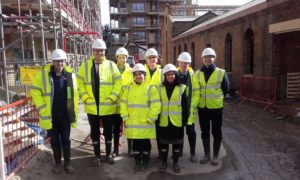 Once personally involved in the sufferings of others, it is tempting to offer charity and stop there. We meet the need, bandage the wound and move on. Most likely people will call us saints.
Once personally involved in the sufferings of others, it is tempting to offer charity and stop there. We meet the need, bandage the wound and move on. Most likely people will call us saints.
Justice-seeking, however, walks a different path as we seek to move beyond the sticking plaster to tackle the root cause. Careful analysis is required to unearth the issue, to research in detail the layers behind it and to identify those with power to change things. When working for change, moments will come when we face challenge. Earthly and spiritual powers will do their best to block our way. Disturbing the status quo or pointing out an injustice will not always make us friends. No longer will
everyone call us saints and some will consider us troublemakers. This is often where we begin to falter. We like to be popular. History, however, reminds us that justice is always, always a struggle. We must purposely and prayerfully push on.
POLITICS, BUT NOT AS YOU KNOW IT
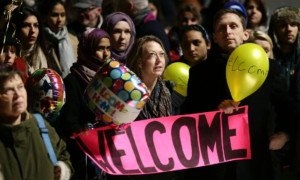 The final stage is to move from a protest voice on the margins into the corridors of power, where decisions are made. Forcing your way into this space can happen only when we organise ourselves to be powerful enough for decision-makers to take notice. This is the work of politics – not party politics – but community-based, people politics. And this is where corps and centres come into their own. After all, we know our communities and, in most cases, we have been a constant presence for generations. Almost every local expression is connecting directly with those who suffer injustice and, crucially, we are collectives who exist to transform the world! In a society where institutional
The final stage is to move from a protest voice on the margins into the corridors of power, where decisions are made. Forcing your way into this space can happen only when we organise ourselves to be powerful enough for decision-makers to take notice. This is the work of politics – not party politics – but community-based, people politics. And this is where corps and centres come into their own. After all, we know our communities and, in most cases, we have been a constant presence for generations. Almost every local expression is connecting directly with those who suffer injustice and, crucially, we are collectives who exist to transform the world! In a society where institutional
life is waning, it positions us in an extraordinary place to be justice- seekers.
When we look at our neighbourhoods we soon discover others who share our concerns for justice: faith organisations, schools, community groups. The work of building broad and powerful alliances of justice-seekers will position us around the table where we can speak truth to power and be heard.
The good news is that I hear stories of Salvationists increasingly joining in exactly this kind of grassroots justice- seeking and of powerful transformational results. My prayer is that we grasp the moment presented to us. May God bless us with his holy discomfort to live the just life.

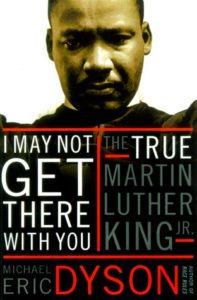 Whilst much has been written about the life and work of Martin Luther King Jr. this is a book that goes beyond autobiography to assess the legacy of King in America today.
Whilst much has been written about the life and work of Martin Luther King Jr. this is a book that goes beyond autobiography to assess the legacy of King in America today.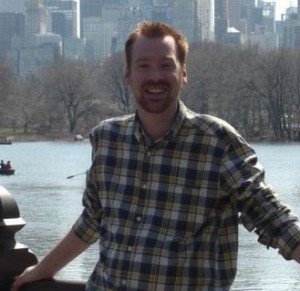 Tom Underwood teaches young people with autism and writes plays about peace. He is currently writing about peace activism and arms trade activists. He worships at
Tom Underwood teaches young people with autism and writes plays about peace. He is currently writing about peace activism and arms trade activists. He worships at 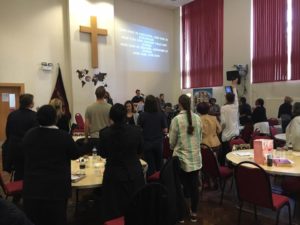 In 1912, General William Booth, founder of The Salvation Army, entered the Royal Albert Hall in London to give his last, most notable address to a packed crowd of 7,000 Salvationists. The most famous part of this speech is:
In 1912, General William Booth, founder of The Salvation Army, entered the Royal Albert Hall in London to give his last, most notable address to a packed crowd of 7,000 Salvationists. The most famous part of this speech is: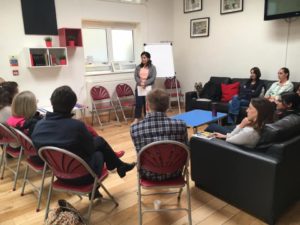 So the justice conference “While Women Still Weep” held at Southwark Corps recently was my effort to do something. An effort to bring awareness to others, to create a day, a moment where God could speak and stir our hearts to action. We had speakers from International Justice Mission talking about the international efforts being made to rescue and restore, we had speakers from local Salvation Army chapters like Faith House and the Territorial department for Anti Human trafficking to give us information on local situations and how we could join the fight. A representative from Citizens Uk was there to speak about the importance of listening to people’s stories and Stephanie Chagis Bijl talked about joining the justice fight through prayer.
So the justice conference “While Women Still Weep” held at Southwark Corps recently was my effort to do something. An effort to bring awareness to others, to create a day, a moment where God could speak and stir our hearts to action. We had speakers from International Justice Mission talking about the international efforts being made to rescue and restore, we had speakers from local Salvation Army chapters like Faith House and the Territorial department for Anti Human trafficking to give us information on local situations and how we could join the fight. A representative from Citizens Uk was there to speak about the importance of listening to people’s stories and Stephanie Chagis Bijl talked about joining the justice fight through prayer. It was a day where hopefully people came away with some practical tools and ideas on how they could join the fight. Once you know, you can no longer stand back and do nothing.
It was a day where hopefully people came away with some practical tools and ideas on how they could join the fight. Once you know, you can no longer stand back and do nothing.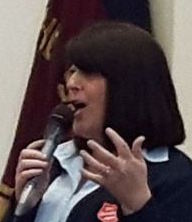 Sandra Pawar is currently the Corps Officer at Southwark Corps. She is passionate about seeing broken lives made whole, captives set free and chains of injustice broken.
Sandra Pawar is currently the Corps Officer at Southwark Corps. She is passionate about seeing broken lives made whole, captives set free and chains of injustice broken. 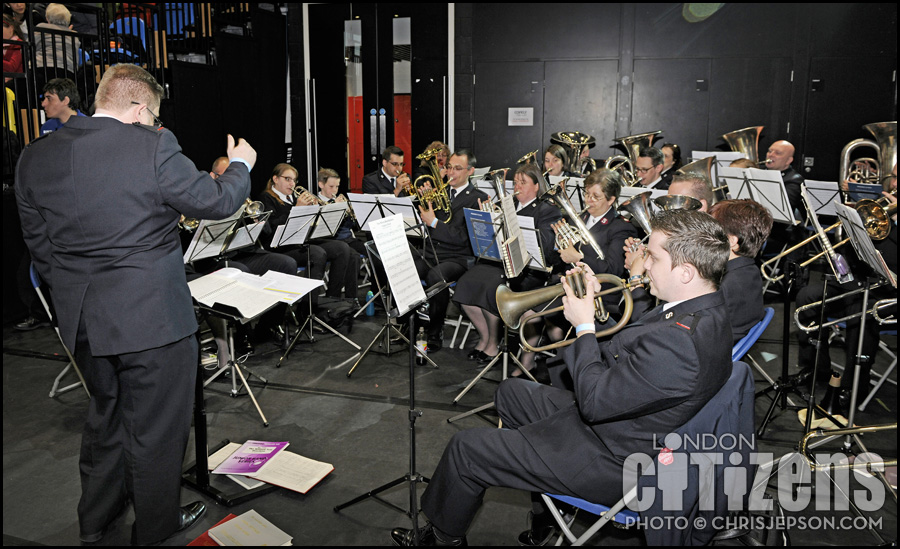
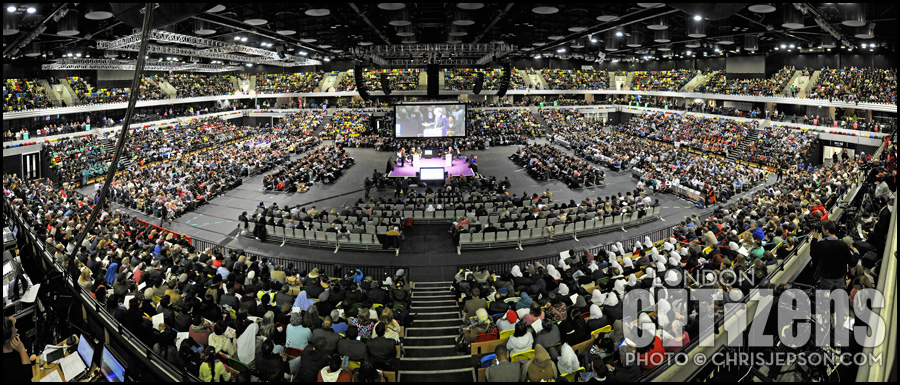 The William Booth College band was proud to represent the college and the wider Salvation Army at the London Mayoral Assembly organised by London Citizens.
The William Booth College band was proud to represent the college and the wider Salvation Army at the London Mayoral Assembly organised by London Citizens.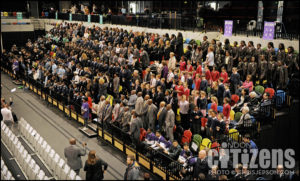 The purpose of this assembly was to get the two frontrunners in the race for London Mayor to agree to ‘asks’ outlined in the London Citizens Manifesto. These ‘asks’, which are developed from the grassroots, focussed on the living wage, citizenship and integration, training and employment prospects for young people and housing.
The purpose of this assembly was to get the two frontrunners in the race for London Mayor to agree to ‘asks’ outlined in the London Citizens Manifesto. These ‘asks’, which are developed from the grassroots, focussed on the living wage, citizenship and integration, training and employment prospects for young people and housing.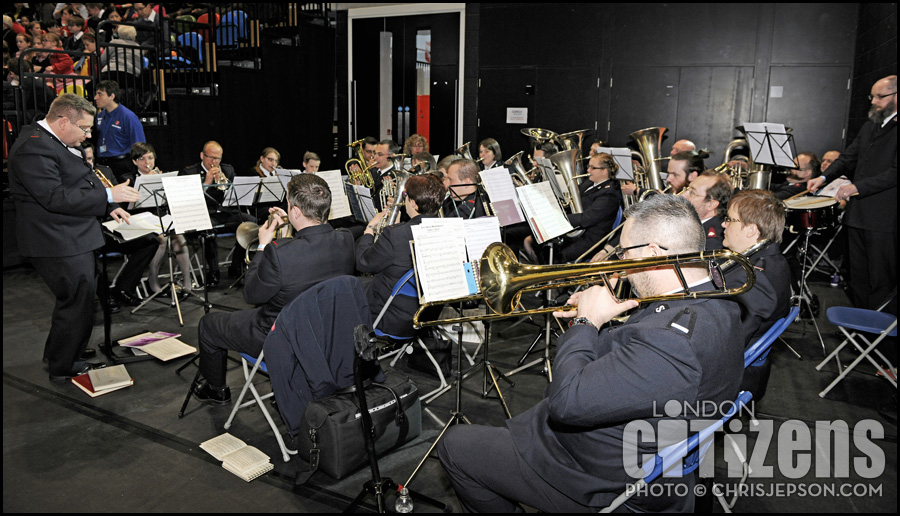 moment. A twitter comment stated that you could recognise the sound of a Salvation Army band a mile off!
moment. A twitter comment stated that you could recognise the sound of a Salvation Army band a mile off!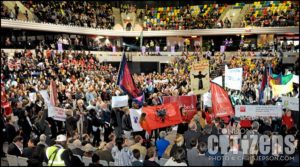 Last night saw around 6,000 people gather at the Copper Box arena in Olympic Park in Stratford for the Citizens UK London Mayoral Assembly. Front runners in the mayoral race Zac Goldsmith and Sadiq Khan were present and made encouraging commitments on housing, refugees and the Living Wage. The night also saw a fantastic presence of London Salvationists, with nearly 200 present from William Booth College and 10 London corps: Ilford, Stepney, Raynes Park, Southwark, Nunhead, Camberwell, Bromley, Wimbledon, Woodford and Mitcham. The College band played during the assembly and Captain John Clifton negotiated with Zac Goldsmith on his reaction to Citizens’ asks on Community Land Trusts. More information and reaction will be posted in the coming days, but we thought it would be good to simply share a small selection of the pictures from the assembly to remember a wonderful night:
Last night saw around 6,000 people gather at the Copper Box arena in Olympic Park in Stratford for the Citizens UK London Mayoral Assembly. Front runners in the mayoral race Zac Goldsmith and Sadiq Khan were present and made encouraging commitments on housing, refugees and the Living Wage. The night also saw a fantastic presence of London Salvationists, with nearly 200 present from William Booth College and 10 London corps: Ilford, Stepney, Raynes Park, Southwark, Nunhead, Camberwell, Bromley, Wimbledon, Woodford and Mitcham. The College band played during the assembly and Captain John Clifton negotiated with Zac Goldsmith on his reaction to Citizens’ asks on Community Land Trusts. More information and reaction will be posted in the coming days, but we thought it would be good to simply share a small selection of the pictures from the assembly to remember a wonderful night: 
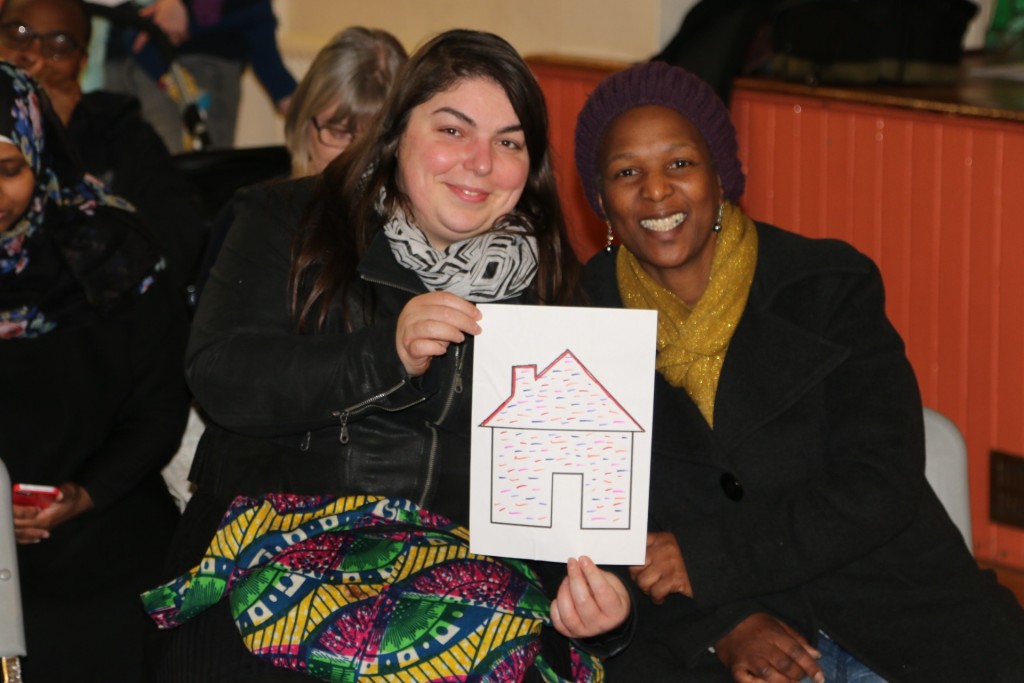 So for some time we’ve been trying to find a way to involve our toddlers and their families in our campaign for more affordable housing in the borough. But this hasn’t been easy. Our assemblies with local councillors have usually taken place in the evenings and for many parents the prospect of an over-tired toddler the next day has just been too daunting! So in the lead up to our housing assembly we realised that we needed to get creative to make the children’s needs heard.
So for some time we’ve been trying to find a way to involve our toddlers and their families in our campaign for more affordable housing in the borough. But this hasn’t been easy. Our assemblies with local councillors have usually taken place in the evenings and for many parents the prospect of an over-tired toddler the next day has just been too daunting! So in the lead up to our housing assembly we realised that we needed to get creative to make the children’s needs heard.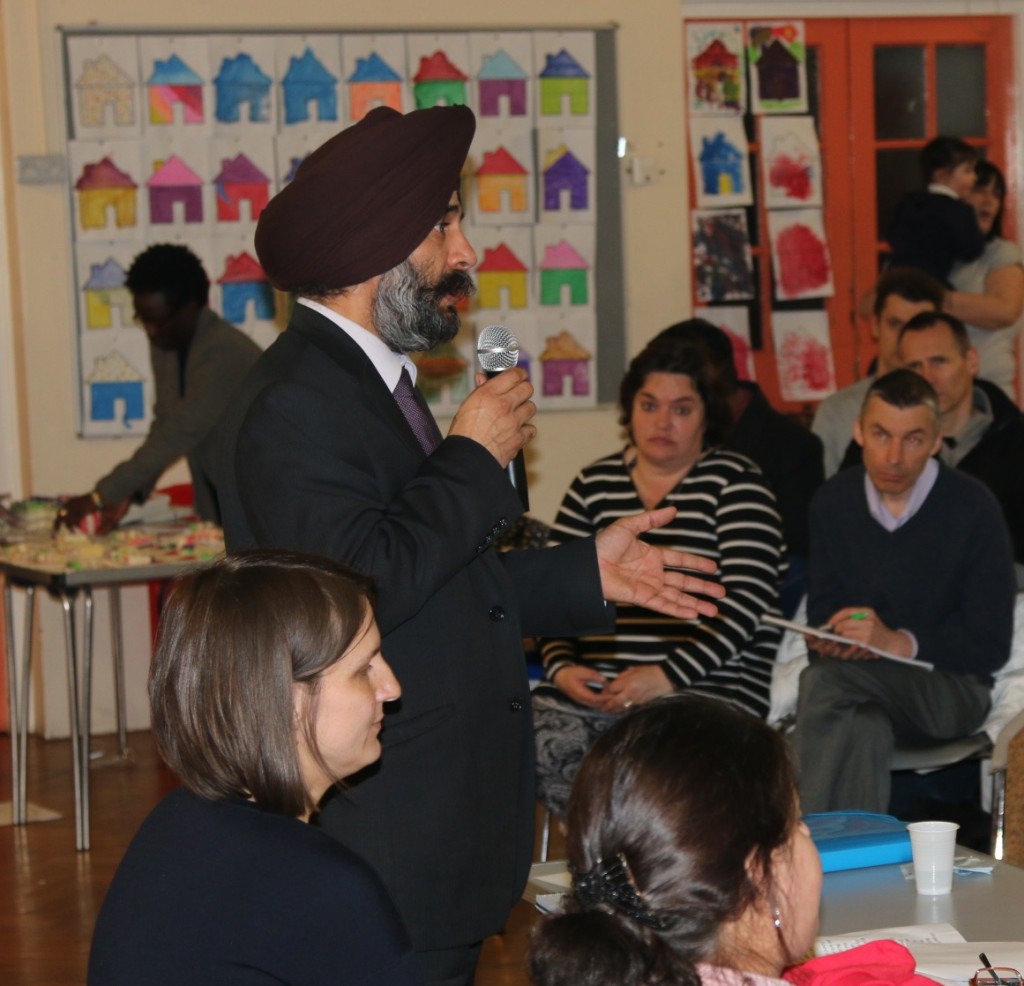
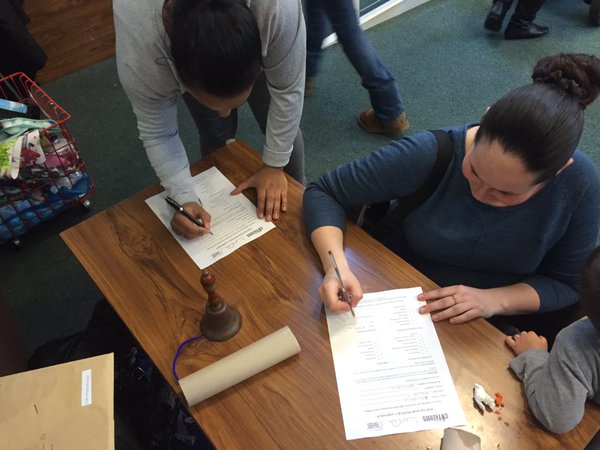
 By Sam Tomlin
By Sam Tomlin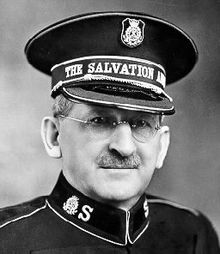
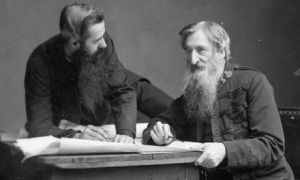 He was as good as his word. The remarkable campaign that followed with help from reformer Josephine Butler, journalist W T Stead and Salvationists up and down the land brought about a change in the law. The campaign involved the publishing of shocking stories in the press, a 2 mile long petition delivered to the door of parliament and the buying of a child. Yes, that’s buying a child – to prove it could be done in London for £5. The result of that action was a date in court for Bramwell. After a 12 day trial that held the attention of the country, he was acquitted, although Stead was jailed for 3 months. At the time many feared it would be the end of The Salvation Army with the Founder’s Son and Chief of Staff in the dock of the Central Criminal Court. And yet as Bramwell later reflected when General:
He was as good as his word. The remarkable campaign that followed with help from reformer Josephine Butler, journalist W T Stead and Salvationists up and down the land brought about a change in the law. The campaign involved the publishing of shocking stories in the press, a 2 mile long petition delivered to the door of parliament and the buying of a child. Yes, that’s buying a child – to prove it could be done in London for £5. The result of that action was a date in court for Bramwell. After a 12 day trial that held the attention of the country, he was acquitted, although Stead was jailed for 3 months. At the time many feared it would be the end of The Salvation Army with the Founder’s Son and Chief of Staff in the dock of the Central Criminal Court. And yet as Bramwell later reflected when General: